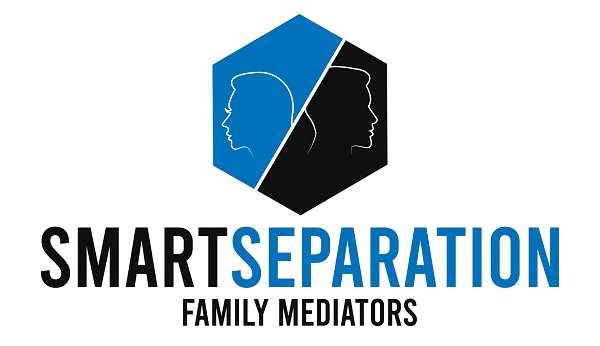Divorce in Ontario can be a complex and emotionally charged process, especially when it involves navigating the court system or hiring expensive legal representation. In Toronto, many separating couples are now searching for a Divorce Lawyer alternative that helps them avoid high legal fees, long delays, and the stress that comes with a traditional litigation process.
One increasingly popular solution is family mediation—a collaborative, cost-effective method that allows couples to resolve their separation and divorce-related issues outside of court. Working with a Toronto family mediator offers a more amicable way to finalize your divorce, especially when both parties are open to cooperation.
Can You Get a Divorce Without a Lawyer in Ontario?
Yes—you can absolutely get a divorce in Ontario without hiring a lawyer. The Divorce Act and Ontario family law do not require legal representation to file for or obtain a divorce.
In fact, many couples in Toronto successfully complete uncontested divorces—where both parties agree on all major issues such as child custody, support, and division of assets—without ever stepping into a courtroom or engaging a lawyer. Instead, they rely on alternative dispute resolution methods like family mediation to come to a fair and legally binding agreement.
Plenty of legal information and resources are publicly available to help you understand your rights and responsibilities. Reputable sources include:
- Ontario.ca – Family Law
- CLEO (Community Legal Education Ontario)
These platforms provide easy-to-understand guides on separation, divorce, and family law forms.
While it’s not mandatory to hire a lawyer, it is strongly recommended to seek independent legal advice (ILA) before signing any separation agreement to ensure the terms are fair and enforceable.
What Is a Family Mediator and How Do They Help?
A Toronto family mediator is a trained, neutral third party who helps separating or divorcing couples resolve their issues outside of court. Unlike a lawyer, a mediator does not represent either person and does not provide legal advice. Instead, their role is to guide discussions, encourage cooperation, and help both parties reach a fair, voluntary agreement on the terms of their separation.
Key Areas a Family Mediator Can Help With:
- Parenting Time and Decision-Making Responsibilities
Mediators help parents create detailed parenting plans, outlining how much time children will spend with each parent and how important decisions (e.g., education, healthcare, religion) will be made. - Division of Property and Debts
Family mediators assist couples in fairly dividing assets such as the matrimonial home, bank accounts, vehicles, pensions, and other jointly owned property, as well as addressing any shared debts. - Child Support and Spousal Support
Mediators help calculate support based on Ontario’s Child Support Guidelines and discuss any entitlement to spousal support, taking into consideration the length of the relationship, incomes, and financial needs.
Why Choose a Mediator?
Family mediators promote a collaborative and cost-effective approach to divorce. Their goal is not to “win” for either side, but to foster respectful dialogue and support couples in reaching agreements that meet both their needs—especially when children are involved.
In Toronto, mediators often have professional backgrounds in family law, social work, or psychology, and many are accredited through the Ontario Association for Family Mediation (OAFM) or similar regulatory bodies. This ensures they are well-versed in Ontario’s family law system and can help couples make informed decisions—without the pressure and expense of litigation.
Why Choose Mediation as a Divorce Lawyer Alternative?
More and more couples in Toronto are turning to family mediation as a practical and peaceful Divorce Lawyer alternative. Mediation offers several benefits that make it an appealing option for those looking to separate or divorce without the stress, expense, and delay of traditional litigation.
a. Lower Cost
One of the biggest advantages of mediation is the cost savings. Hiring a divorce lawyer in Toronto can cost thousands—or even tens of thousands—of dollars per person. Mediation, on the other hand, is significantly more affordable, with fees usually charged hourly and shared between both parties. For many, this makes mediation a far more accessible option.
b. Faster Process
Court cases can take months or even years to resolve due to court backlogs and procedural delays. Mediation is a much faster alternative, with many couples resolving their issues in just a few sessions. This allows families to move forward with less disruption to their lives.
c. Reduced Conflict
Unlike the adversarial nature of court proceedings, mediation focuses on communication and cooperation. The mediator helps both parties express their concerns, identify shared goals, and find workable solutions. This often leads to less emotional stress and a healthier post-separation relationship—especially important when children are involved.
d. Flexible and Private
Mediation is conducted in a confidential setting, either in-person or virtually, and gives couples full control over the outcome. Rather than having a judge impose a decision, both parties work together to create customized solutions that reflect their unique needs and priorities. This flexibility is something the court process rarely provides.
Step-by-Step: Getting a Divorce in Toronto Using a Family Mediator
If you and your spouse are ready to move forward without hiring a lawyer, here’s how you can get a divorce in Toronto using a Family Mediator. This step-by-step process outlines how mediation works and how it fits within Ontario’s legal framework for separation and divorce.
Step 1: Agree to Mediate
Mediation is a voluntary process. That means both parties must consent to participate. If one spouse is unwilling, mediation cannot proceed. However, if both individuals are open to respectful dialogue and compromise, mediation can be a powerful tool for resolving disputes without litigation.
Step 2: Choose a Qualified Toronto family mediator
It’s essential to choose a mediator who is experienced in Ontario family law. Look for professionals who are accredited by reputable organizations such as the Ontario Association for Family Mediation (OAFM). Many Family Mediators in Toronto also offer virtual sessions, making it easier to participate from home.
Step 3: Attend Mediation Sessions
Mediation typically involves a combination of joint sessions (with both parties present) and individual sessions (private meetings with each party). During these discussions, the mediator helps you address all relevant issues, including:
- Parenting time and decision-making
- Division of assets and debts
- Child support and spousal support
- Matrimonial home arrangements
The number of sessions required depends on the complexity of your situation and the level of cooperation between both parties.
Step 4: Create a Separation Agreement
Once you’ve reached an agreement on all issues, the mediator will help prepare a Memorandum of Understanding (MOU) or a Separation Agreement. This document outlines the terms of your settlement, including parenting plans and financial arrangements.
While not legally required, it is strongly recommended that each spouse obtain independent legal advice (ILA) before signing the final agreement. This ensures that the agreement is both fair and enforceable under Ontario family law.
Step 5: File for Divorce
After your separation agreement is signed, you can move forward with filing for divorce. In Ontario, there are two main options:
- Online divorce application through the Ontario eFiling system
- Filing paperwork at the Superior Court of Justice – Family Court in Toronto
For uncontested divorces, your signed separation agreement can be attached to your divorce application. If all requirements are met, a judge will review and grant your divorce without the need for a court appearance.
When You Might Still Need Legal Advice
While family mediation is an effective alternative to hiring a divorce lawyer in Toronto, there are still situations where limited legal guidance can be very helpful—even if you’re choosing not to go to court.
Why Legal Advice Still Matters:
- Understand Your Rights
A family mediator helps guide the conversation, but they cannot give legal advice. It’s important to speak with a lawyer to understand your rights and responsibilities under Ontario’s Family Law Act, especially when it comes to complex matters like property division, spousal support, or parenting time. - Review Your Separation Agreement
Once you and your spouse have reached an agreement through mediation, it’s highly recommended to have the final document reviewed by a lawyer before signing. This ensures the agreement is fair, complies with Ontario law, and will hold up in court if ever challenged.
Combining Mediation with Limited-Scope Legal Services
Many people in Toronto choose to combine mediation with limited-scope legal services—also known as “unbundled” legal services. This allows you to work with a lawyer on specific tasks (such as reviewing your agreement or preparing your divorce forms) without retaining full legal representation, keeping costs down while still protecting your interests.
By using this hybrid approach, you can benefit from the collaborative nature of mediation while ensuring your legal rights are safeguarded every step of the way.
Who Should Not Use Mediation
While family mediation is an effective Divorce Lawyer alternative for many couples in Toronto, it’s not the right solution for everyone. Certain situations require the involvement of a lawyer or the court system to ensure fairness and safety.
Mediation May Not Be Appropriate In:
- Cases Involving Domestic Violence or Abuse
If there is a history of physical, emotional, or financial abuse, or if one party feels unsafe or intimidated, mediation is not recommended. In these situations, the safety of all parties must come first, and legal protections may be necessary. - Coercion or Power Imbalance
Mediation relies on both parties being able to negotiate freely and fairly. If one person is dominating the conversation or pressuring the other into agreement, the process may lead to an unfair outcome. A significant imbalance of power can undermine the effectiveness of mediation. - Refusal to Cooperate or Disclose Information
Mediation requires full and honest disclosure of financial information, assets, and liabilities. If one party refuses to share information, avoids communication, or does not participate in good faith, the mediator cannot help reach a resolution. In such cases, legal intervention may be necessary.
As an experienced family and divorce mediator in Toronto, I often write blogs to provide insights, tips, and resources on family mediation and divorce in Ontario. Follow my blog to stay informed and empowered during challenging times.



